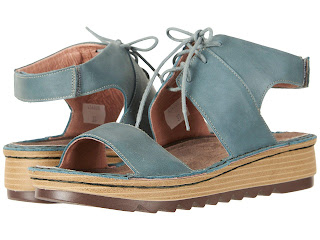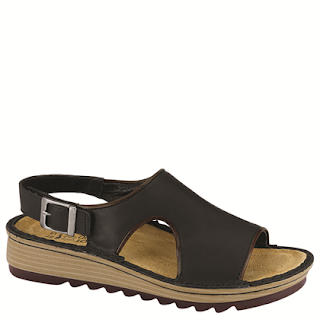Naot Sandals
Podiatrist Approved for Summer 2018
Podiatrist Approved for Summer 2018
Naot Alpicola
Naot Verbina
Naot Begonia
Naot Ficus
Naot Krista
Naot Sophia
These Naot sandals are all good choices for the Summer of 2018! They each meet three of the four criteria that makes an excellent sandal, which is that they all have a thick, rigid and non-flexible sole, a wide toebox, and rearfoot control. Although they do not have the best arch support, it is possible to add self-adhesive over-the-counter arch support if needed.
For a shoe to be good enough for your feet, it must have a thick, rigid and non-flexible sole that stops motion through painful joints, tendons, ligaments, and muscles. The idea is counterintuitive, but the essence is that if you stop motion through painful joints (with a rigid sole) then you stop or limit the pain through those joints. If you have arthritic joints or a tendency to develop stress fractures or a history of a previous foot fracture then the last thing you want to do is wear shoes that are flimsy and allow motion through compromised and painful foot structures.
A wide toe box helps prevent hammertoes, bunions, corns, and ingrown toenails. The rearfoot control is important because if you are wearing shoes that are backless, then you are promoting hammertoes, tendonitis, and knee, hip, and lower back strain.
These sandals are recommended for patients with:
*Bunions
*Hammertoes
*Hallux Limitus (limited range of motion through 1st toe joint)
*Functional Hallux Limitus
*Hallux Rigidus (no range of motion through 1st toe joint)
*Osteoarthritis
*Rheumatoid Arthritis
*Metatarsalgia
*Morton's Neuroma
*Capsulitis
*Tailor's Bunions
*Plantar Fasciitis
*Achilles Tendonitis
*History of Lisfranc's Injuries
*Hypermobility / Ligament Laxity
*Pes Planus
*Plantar Plate Injury
These sandals are not recommended for patients with:
*Diabetes
*History of Ulcerations
*Charcot Foot
Check with your Podiatrist to see if these sandals are appropriate for you if you have:
*Peripheral Arterial Disease (poor circulation)
*Peripheral Neuropathy (nerve damage)
*Ankle Instability
For more information, please refer to my other articles:
Podiatrist top 10 recommendation to alleviate foot pain
Shoe recommendations for patients recovering from Lisfranc injuries
I hope this was helpful!
Dr. Cathleen A. McCarthy
:)





